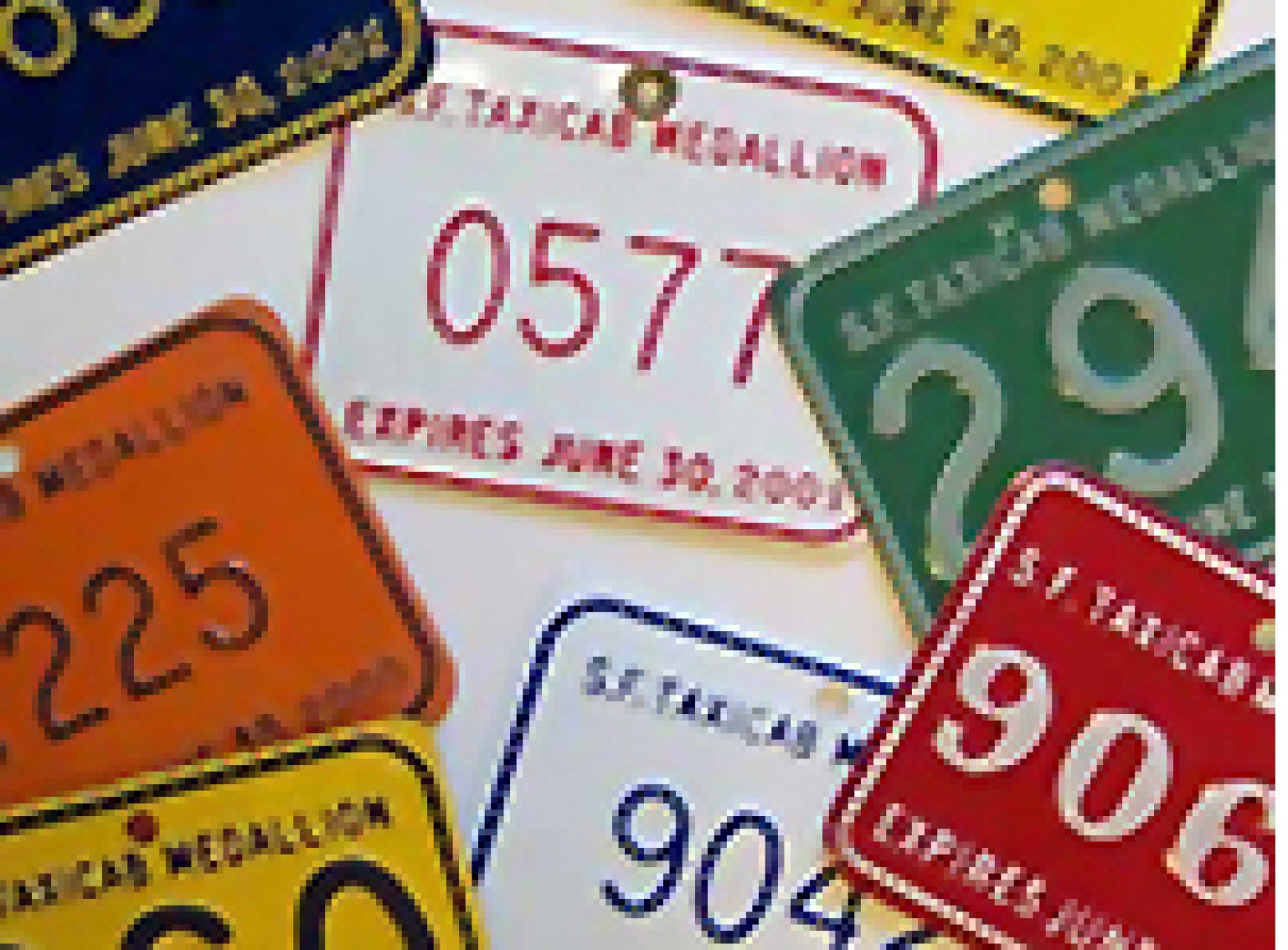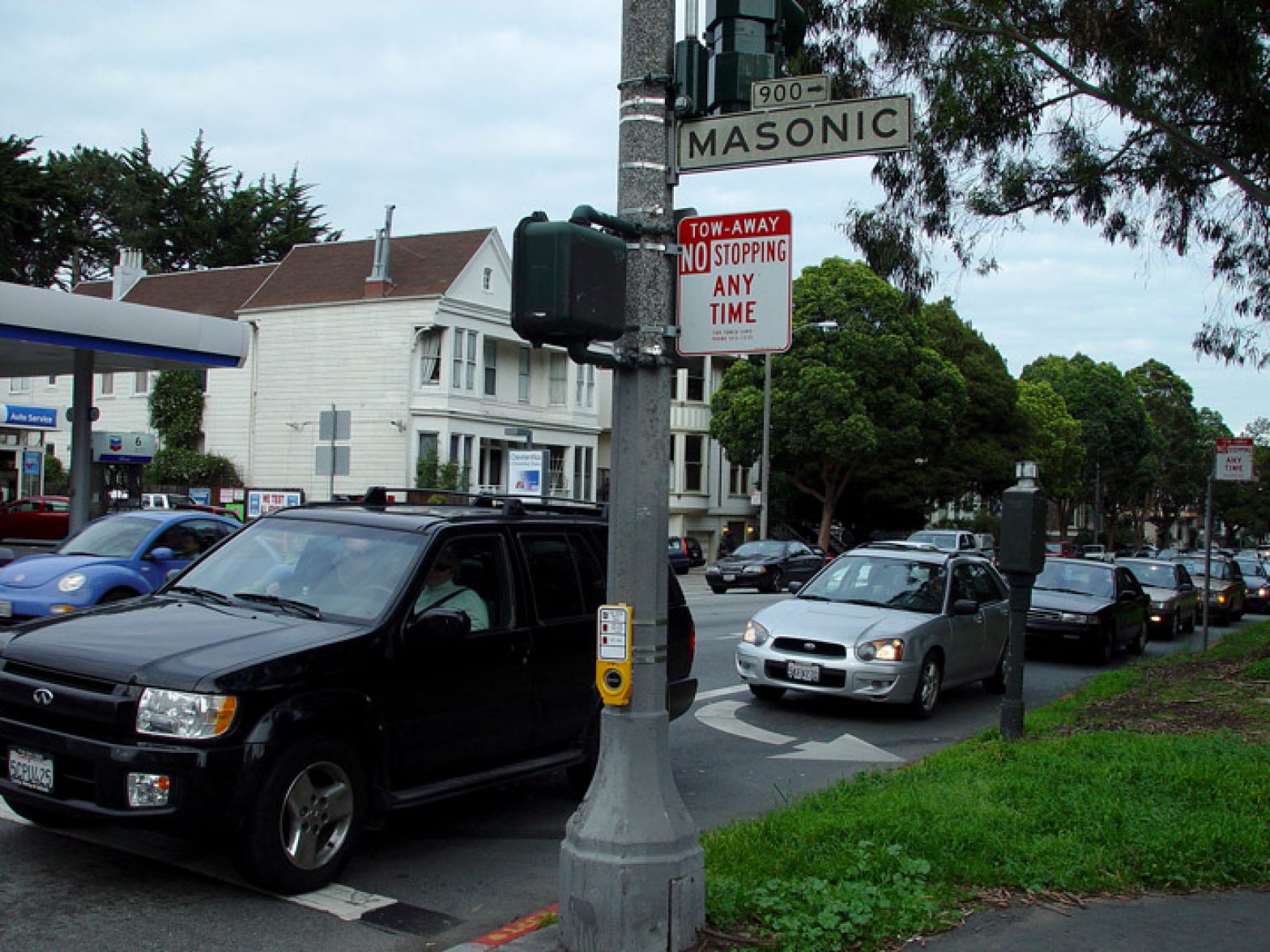Every day during rush hours, almost like clockwork, Miranda Blankenship hears screeching tires and honking horns outside her front door on Masonic Avenue.
Commuters and bicyclists share the busy, four-lane street that serves as one of the major north-south veins through the city, funneling traffic to and from Highway 101. More than 35,000 cars traverse Masonic on a given day, and the result is chaotic and dangerous enough that Blankenship avoids it entirely on her daily bike commute from Masonic and McAllister Street to the Mission District.
“It’s pretty hectic on Masonic,” Blankenship said, noting that most cars are going far faster than the 25-mph limit. “I just stick to side streets.”
For Blankenship, her neighbors, bikers, pedestrians and drivers, relief might be on the way for the nearly one-mile stretch of Masonic between Geary Boulevard and Fell Street. A lengthy campaign by neighborhood and transit-advocacy groups took a big step forward late last month when the Municipal Transportation Authority, which controls the city’s transit funds, allocated $120,000 to study potential improvements along Masonic.
Next month, the Masonic Avenue Traffic Calming Plan will begin counting bikes, pedestrians and ridership on the 43-Masonic bus line. The report will consider eliminating auto lanes to accommodate new bike lanes and building medians at certain intersections to improve pedestrian safety. The MTA hopes to finish the planning and approval process by summer 2010.



